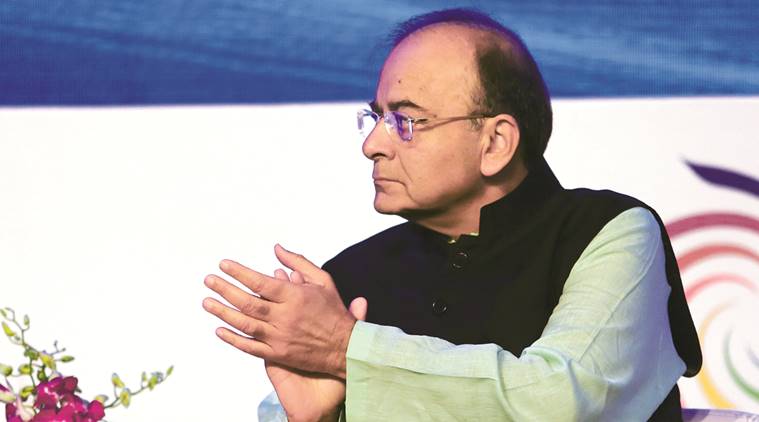Rajya Sabha passes all four GST bills to pave way for rollout
Union Finance Minister Arun Jaitley, replying to about an 8-hour-long debate, said the GST will not lead to inflation as suspected by some sections.
 Finance Minister Arun Jaitley said in the Rajya Sabha that the GST Bill is a collective property. (Express photo: Prem Nath Pandey)
Finance Minister Arun Jaitley said in the Rajya Sabha that the GST Bill is a collective property. (Express photo: Prem Nath Pandey)
The Rajya Sabha passed four supplementary legislations on Thursday to finally pave way for the roll out of the much-awaited Goods and Services Tax (GST) for July 1. The four supplementary bills are the Central GST Bill, 2017, the Integrated GST Bill, 2017, the GST (Compensation to States) Bill, 2017 and the Union Territory GST Bill, 2017. Only last month on March 29, the Lok Sabha had passed these bills. After the Bills were passed in upper house, Jaitley conceded the fact that successive governments have contributed towards the one tax regime and no one person can take credit for it. “This Bill, I have no hesitation in conceding, is a collective property,” he said.
The Lok Sabha had approved these bills on March 29. What remains now is that all states will have to pass the States GST Bill after which the new indirect tax regime can be rolled out. Union Finance Minister Arun Jaitley, replying to about an 8-hour-long debate, said the GST will not lead to inflation as suspected by some sections, adding that this reform will usher in a uniform indirect tax regime in the country. “I have no hesitation in conceding that it is not a bill for which one government, one person or any individual should take a credit. It is a collective property in which states, political parties, central government, successive governments have all contributed to it.
READ: Over coffee, Rahul Gandhi, Sitaram Yechury debate whether to push GST amendments
Jaitley, in fact, went up to the Opposition benches to thank them for supporting the government’s decision. “I have no difficulty in sharing the credit for this with everyone, particularly state governments because we are now
creating a situation which was originally not anticipated in the Constitution.”
The GST, which is decidedly the biggest taxation reform since Independence, will subsume central excise, service tax, VAT and other local levies to create one uniform market. Experts believe that the GST could boost economic growth and improve tax revenue collections.
As for the rates, the GST Council will discuss it on May 18-19. The finance minister said once the GST is implemented, businesses in India can operate peacefully as the harassment in the hands of different authorities will end. The GST Council, which comprises of Centre and states, has recommended a four-tier tax structure – 5, 12, 18 and 28 per cent. On top of the highest slab, a cess will be imposed on luxury and demerit goods to compensate the states for revenue loss in the first five years of GST implementation.
Commenting on the development, Jaitley told news agency ANI, “GST bill passed in Rajya Sabha today. On 17-18 May we will give final approval to rules and rates, looks like it can be implemented from 1 July. Happy at the fact that when it comes to enforcing GST bill all political parties came out in one voice.”
Veteran Congress leader and former prime minister Manmohan Singh struck a cautionary note on the GST Bill when he told ANI that it could be a game changer but can’t assume there will be no difficulties on the way.






- 01
- 02
- 03
- 04
- 05

























